This article was co-authored by Alisa Rassin. Alias Rassin is an Exotics Veterinarian and the Owner of The Exotic Animal Hospital of Pennsylvania in Lansdowne, Pennsylvania. With over a decade of experience, she specializes in treating reptiles, birds, and small mammals. She holds a Veterinariae Medicinae Doctoris from The University of Pennsylvania and a BS in Veterinary Biomedical and Clinical Sciences from Penn State University. She was also certified by the Royal College of Veterinary Surgeons.
There are 12 references cited in this article, which can be found at the bottom of the page.
This article has been viewed 26,620 times.
For your bunny to be as healthy as he can be, he needs to eat a well-balanced diet that meets all of his nutritional needs. Chances are a well-balanced diet will provide your bunny with enough vitamins so that you will not have to give him vitamin supplements.[1] Therefore, you should focus on feeding your bunny the right types of food. However, if he develops vitamin deficiencies, your veterinarian can help you supplement your bunny’s diet.
Steps
Giving Your Bunny Vitamin Supplements
-
1Learn about vitamin deficiencies in bunnies. If your bunny is healthy and is eating a well-balanced diet, it is unlikely that he will need vitamin supplements. However, there may be times when your bunny will need a little extra help getting all of the vitamins he needs. If your bunny's health starts to change, you may need to start suspecting a vitamin deficiency.
- A vitamin D deficiency causes bone and teeth softening, known as rickets in young bunnies and osteomalacia in adult bunnies.[2]
- If your bunny is deficient in vitamin E, he could develop muscular dystrophy. In female bunnies, vitamin E deficiency can lead to the death of unborn and newly born kits (baby bunnies).[3]
- Vitamin A deficiency primarily causes reproductive problems.[4]
- Illness and stress can take a toll on your bunny’s body and increase his vitamin requirements.[5] Your veterinarian can determine if your bunny is sick, or if he is experiencing stress.
-
2Take your bunny to your veterinarian. It may be tempting to start giving your bunny vitamin supplements on your own. However, you may end up over supplementing your bunny's diet, which could make him very sick. Therefore, you should give supplements only under the recommendation of your veterinarian.[6]
- For your appointment, bring in the bags of bunny food, or just the labels from the food bags. This will give your veterinarian a good idea of what you are feeding your bunny, and if the food is providing him with enough vitamins.
- Your veterinarian will perform a physical examination on your bunny and run some blood work to determine the specific vitamins in which your bunny is deficient.
Advertisement -
3Provide your bunny with outdoor time or an artificial UVB light. House rabbits are more likely to become vitamin D deficient because they do not get much sun. The sun that they do get comes in through windows, which reduces the UVB rays.
- To prevent vitamin D deficiency in rabbits, you should allow your rabbit to have 30 to 60 minutes of supervised outdoor time every day. If daily outdoor time is not possible, then you can also purchase an artificial UVB lighting system for your rabbit's enclosure.[7]
-
4Add vitamin supplements to your bunny's food. Your veterinarian will recommend specific vitamin supplements for your bunny. The supplements will likely come in pill or tablet form that you can mix in with his food. Follow your veterinarian's instructions for how to add the supplements to your bunny's diet.
- Following your veterinarian's recommendations will prevent you from giving your bunny too many vitamins, which could lead to serious disease.[8]
- Do not add vitamins to your bunny's water. This is not an effective way of giving your bunny vitamins.
-
5Watch your bunny for signs of vitamin toxicity. Your veterinarian should be able to recommend safe vitamin supplements for your bunny. When you feed them to your bunny, watch him closely for signs that his vitamin intake is too high. For example, signs of vitamin D toxicity include weakness, lack of coordination, and diarrhea.[9]
-
6Learn the disadvantages of vitamin supplementation. Vitamin supplementation may not be as easy as putting the supplement in your bunny’s food or water. Vitamin supplements can sometimes make water taste bad. They could even lead to bacterial growth in the water if you do not change the water frequently.[12]
- Vitamins can be inactivated when exposed to air, water and light, meaning that the supplements could lose their effectiveness quickly.[13]
- If you must give your bunny vitamin supplements, talk to your veterinarian about the best way to store and administer them so they don’t lose their effectiveness.
Feeding Your Bunny a Balanced Diet
-
1Feed your bunny grass hay. Feeding your bunny a healthy, well-balanced diet is the best way to ensure he gets all of the vitamins he needs. Grass hay is a staple of a bunny’s diet and is an excellent source of vitamins. In addition to being a great vitamin source, grass hay provides your bunny with other nutrients (e.g., protein, carbohydrates, fiber) and helps prevent digestive upset. Give your bunny an unlimited supply of grass hay.[14]
-
2Incorporate fresh vegetables into your bunny’s diet. Fresh vegetables are one of the best sources of vitamins for your bunny. A variety of fresh vegetables will give your bunny enough vitamins so that he will not need vitamin supplementation. Examples of vegetables to feed your bunny are leafy greens (e.g., collard, mustard), green peppers, radish tops, and clover.[17]
- Vitamin A is an essential vitamin for bunnies. Feed your bunny at least one vitamin A-rich vegetable (e.g., collard greens, kale, and spinach) per day.[18]
- Fresh leafy greens also provide your bunny with vitamin C.[19]
- To keep your bunny interested in his food, feed him vegetables that have different colors.[20]
- To ensure he gets all of the vitamins he needs, feed him three different types of vegetables per day.[21]
- Introduce new vegetables to his diet one at a time to lessen the likelihood of digestive upset. If a certain vegetable gives him diarrhea, remove it from his diet.[22]
-
3Provide your bunny with commercial rabbit pellets. Pellets are another good vitamin source for bunnies and are nutritionally balanced.[23] Since vitamin D toxicity can make bunnies very sick, commercial rabbit pellets contain only one-third to one-half the toxic amount of vitamin D (≥ 2,300 International Units [IU] per kilogram [kg] of body weight).[24]
- Commercial pellets are formulated to contain enough vitamins and minerals to meet your bunny’s nutritional requirements.
- Vitamins can start breaking down in pelleted food. Store the pellets for only three to four weeks to prevent vitamin loss.
-
4Allow your bunny to eat some of his feces. Interestingly, bunnies will eat their own feces (‘cecotrophy’) to meet their vitamin needs, particularly the vitamin B complex.[25] As unappetizing as it may seem to you, cecotrophy is a necessary aspect of your bunny’s diet. Bunnies produce two types of feces, one of which is a soft pellet covered with mucus (‘cecotroph’).
- As soon as your bunny excretes cecotrophs, he will turn around and eat them directly from his anus.
- If your bunny is obese, he may not be able to reach back to his anus to eat the cecotrophs, resulting in a vitamin deficiency.
Storing Your Rabbit’s Food
-
1Keep your rabbit’s hay in a cool, dry area. It is important to keep your rabbit’s hay cool and dry to prevent it from getting moldy or damp. Mold and dampness can degrade the hay and they can also make your rabbit sick.
-
2Store pellets in an air-tight tin. Your rabbit’s pellets can degrade and lose their nutritional value and vitamin potency if they are exposed to too much air. To reduce exposure to air, store the bag of pellets in a container with a tight lid, such large air-tight tin.
- Storing your rabbit’s food in this way will also help to keep out insects and rodents. Keep the sealed container in a cool and dry place as well, such as in a pantry.
-
3Use food within four weeks of opening. Your rabbit’s food has a shelf-life of about four weeks, so make sure that you note the date when you open a bag of pellets and use the entire bag within four weeks of opening it. Otherwise, the food may not retain as much of its nutritional value or it may even become rancid.
-
4Throw away fruits and vegetables that have gone off. Make sure that you toss out anything that you would not eat yourself. Your rabbit can get sick from fruits and vegetables that have gone bad, just like you can.
Warnings
- Vitamin deficiencies and toxicities can make your bunny very sick. Take your bunny to your veterinarian if you suspect your bunny’s diet is making him sick.⧼thumbs_response⧽
- Obesity can lead to vitamin deficiencies in your bunny if he cannot eat his cecotrophs.⧼thumbs_response⧽
Expert Interview
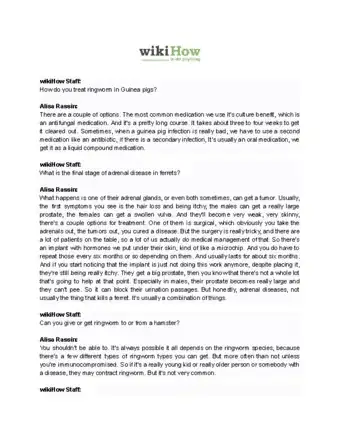
Thanks for reading our article! If you'd like to learn more about caring for a rabbit, check out our in-depth interview with Alisa Rassin.
References
- ↑ http://rabbit.org/small-animal-nutrition/
- ↑ http://animals.mom.me/vitamin-d-poisoning-rabbits-9208.html
- ↑ https://www.merckvetmanual.com/exotic-and-laboratory-animals/rabbits/nutrition-of-rabbits
- ↑ http://dora.missouri.edu/rabbits/vitamin-a-deficiencytoxicity/
- ↑ https://www.merckvetmanual.com/exotic-and-laboratory-animals/rabbits/nutrition-of-rabbits
- ↑ https://rabbit.org/small-animal-nutrition/
- ↑ http://www.petful.com/pet-health/vitamin-d-deficiency-rabbits/
- ↑ http://netvet.wustl.edu/species/rabbits/rabtcare.txt
- ↑ http://animals.mom.me/vitamin-d-poisoning-rabbits-9208.html
- ↑ http://dora.missouri.edu/rabbits/vitamin-a-deficiencytoxicity/
- ↑ http://dora.missouri.edu/rabbits/vitamin-a-deficiencytoxicity/
- ↑ http://rabbit.org/small-animal-nutrition/
- ↑ http://rabbit.org/small-animal-nutrition/
- ↑ http://rabbit.org/small-animal-nutrition/
- ↑ https://vet.purdue.edu/vth/files/documents/Care%20of%20Rabbits.pdf
- ↑ http://animals.mom.me/vitamin-d-poisoning-rabbits-9208.html
- ↑ https://vcacanada.com/know-your-pet/feeding-your-rabbit
- ↑ http://www.peteducation.com/article.cfm?c=18+1803&aid=1638
- ↑ http://rabbit.org/small-animal-nutrition/
- ↑ http://www.peteducation.com/article.cfm?c=18+1803&aid=1638
- ↑ http://www.peteducation.com/article.cfm?c=18+1803&aid=1638
- ↑ http://www.peteducation.com/article.cfm?c=18+1803&aid=1638
- ↑ http://www.peteducation.com/article.cfm?c=18+1803&aid=1638
- ↑ http://animals.mom.me/vitamin-d-poisoning-rabbits-9208.html
- ↑ https://www.merckvetmanual.com/exotic-and-laboratory-animals/rabbits/nutrition-of-rabbits?query=vitamin%20e%20rabbit
- ↑ http://rabbit.org/small-animal-nutrition/
- ↑ http://rabbit.org/small-animal-nutrition/
- ↑ http://articles.extension.org/pages/64500/nutrients-required-by-rabbits
About This Article
To feed your bunny vitamins, make sure you consult your vet first, since most bunnies on a healthy diet don’t need vitamins and giving it too many can make it sick. If your vet recommends giving your bunny vitamins, follow their instructions when administering the tablets. There are other things you can do help your bunny stay healthy without supplements. For example, if you think it’s lacking Vitamin D, make sure it has 30 to 60 minutes of supervised outdoor time each day so it can get Vitamin D from the sun. You should also feed your bunny a balanced diet with plenty of fresh vegetables and commercial rabbit pellets. For more tips from our Veterinary co-author, including how to identify the signs of vitamin toxicity in your bunny, read on!
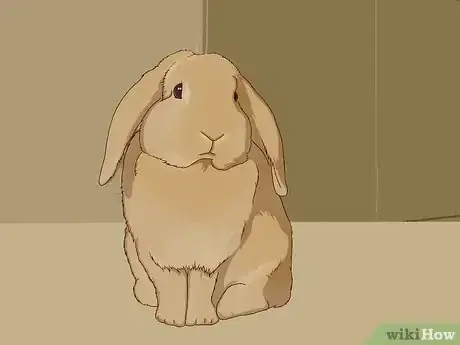
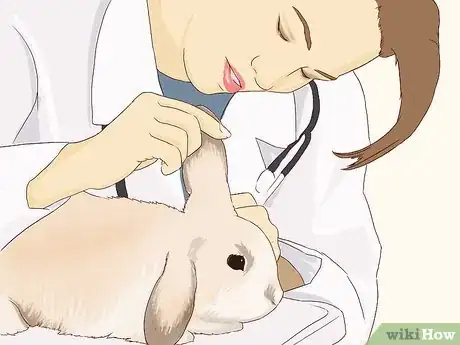
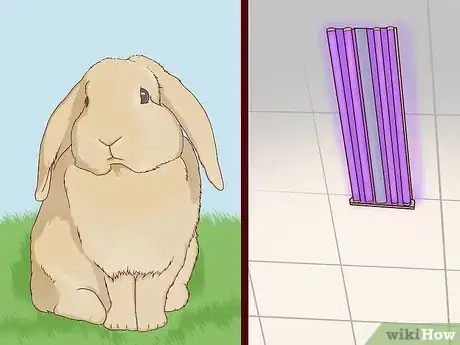
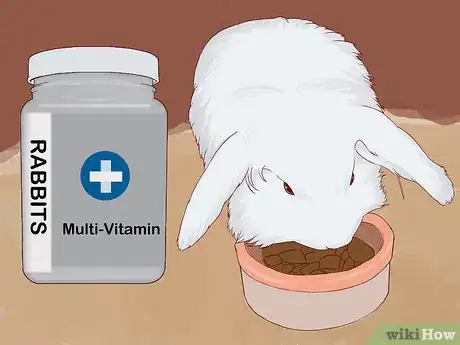
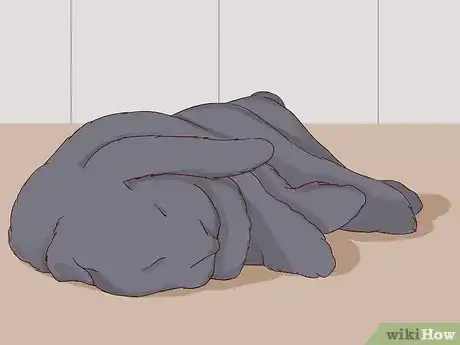
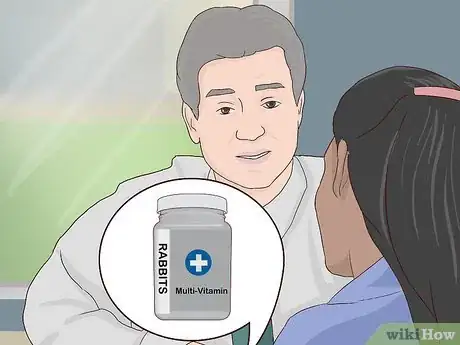
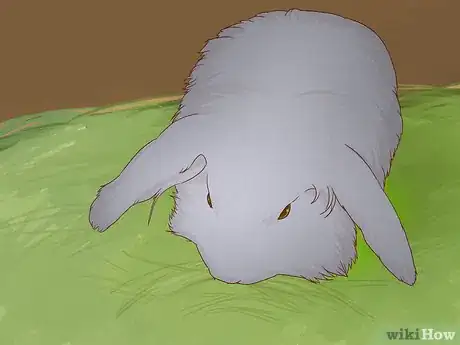
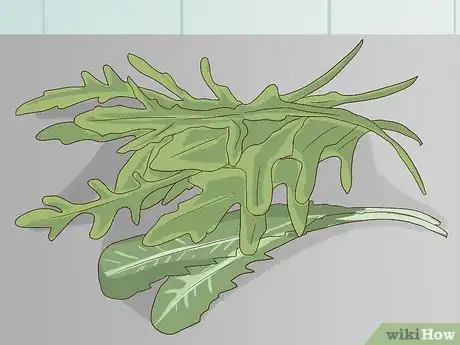
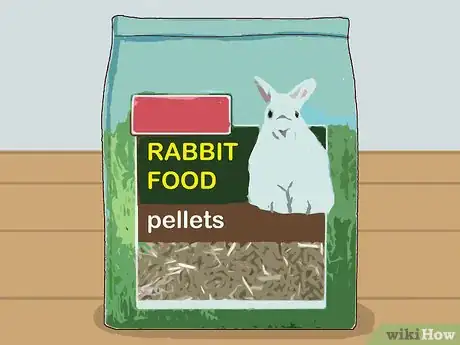
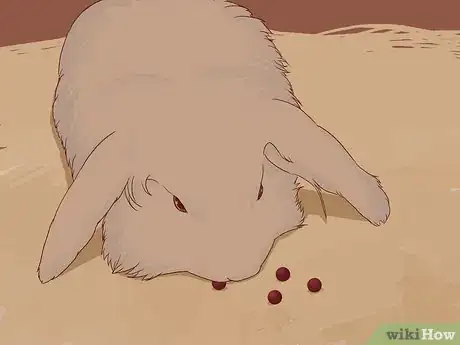
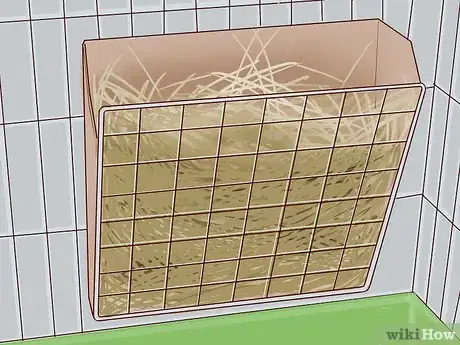
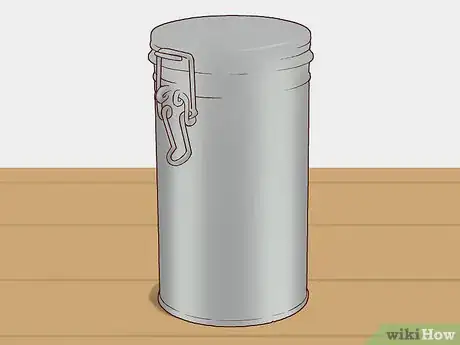
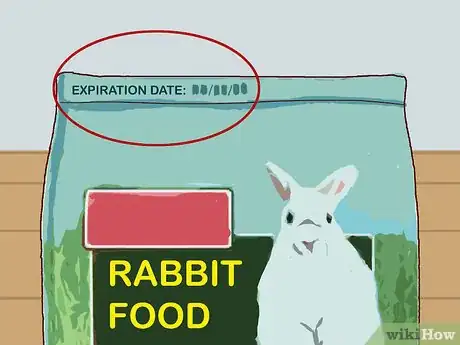
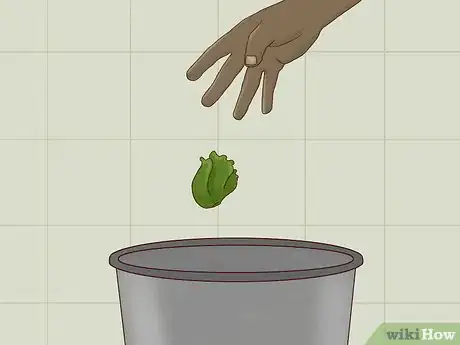
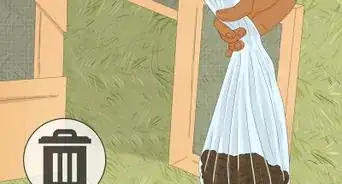
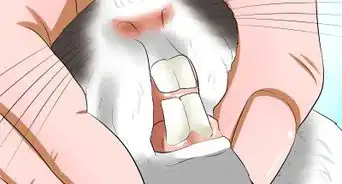
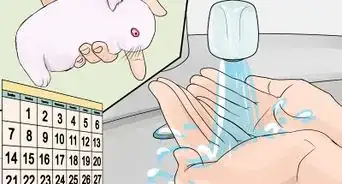
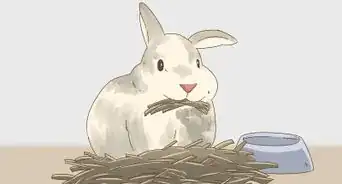
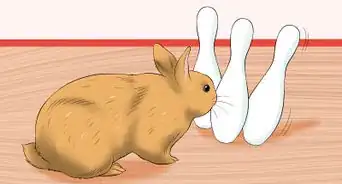
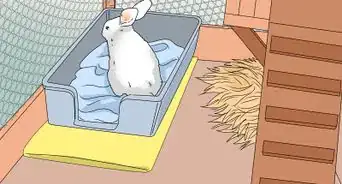
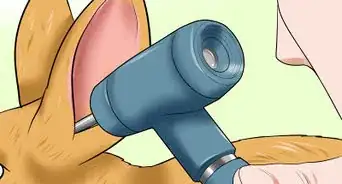
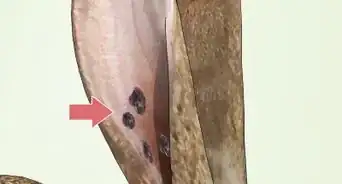
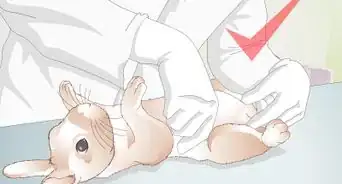
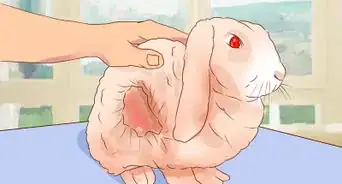
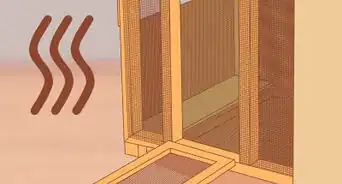
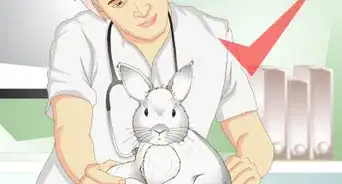

-in-Rabbits-Step-12.webp)







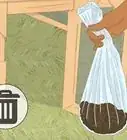
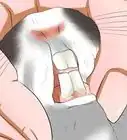
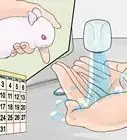




































Medical Disclaimer
The content of this article is not intended to be a substitute for professional medical advice, examination, diagnosis, or treatment. You should always contact your doctor or other qualified healthcare professional before starting, changing, or stopping any kind of health treatment.
Read More...